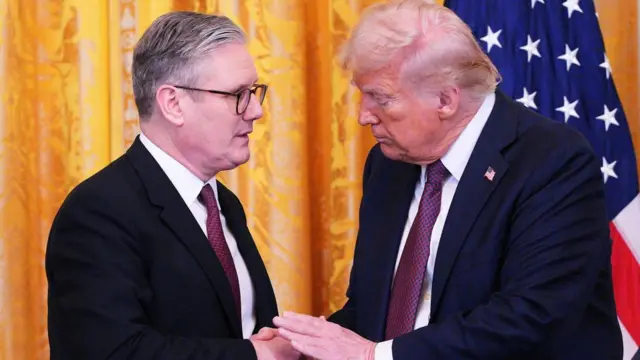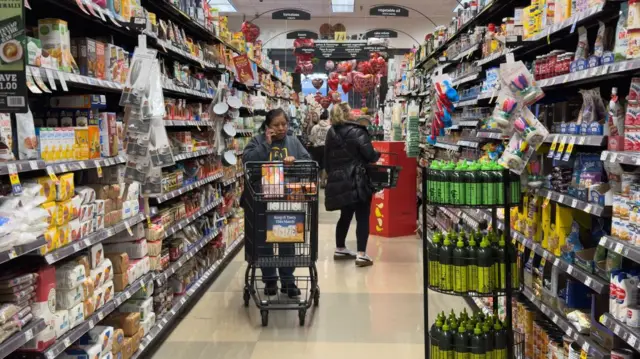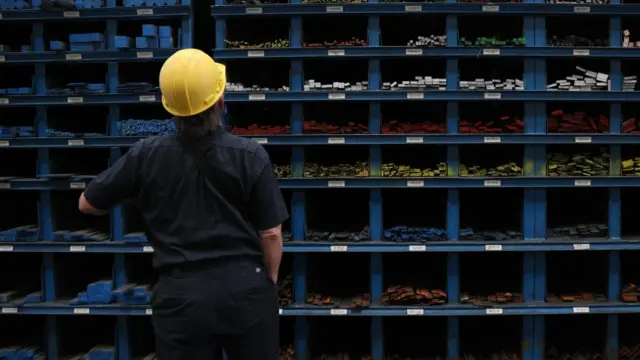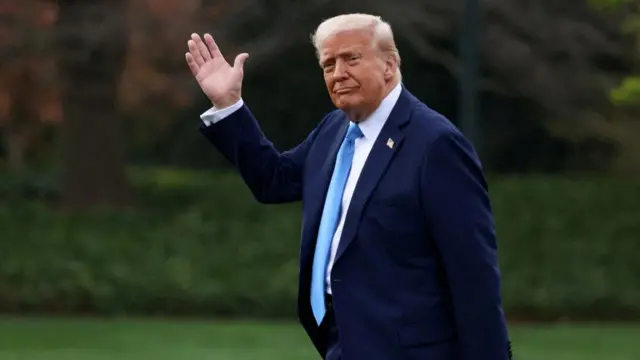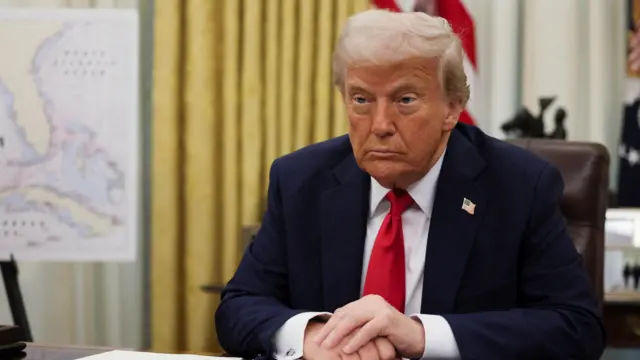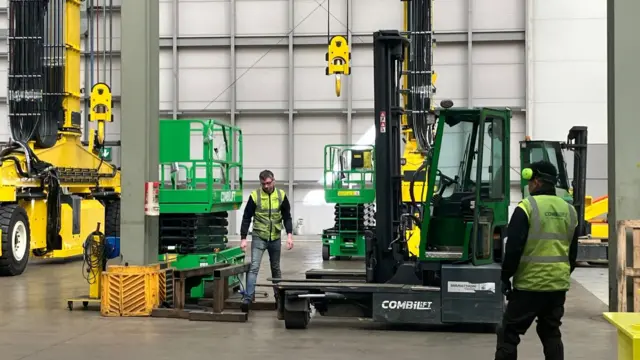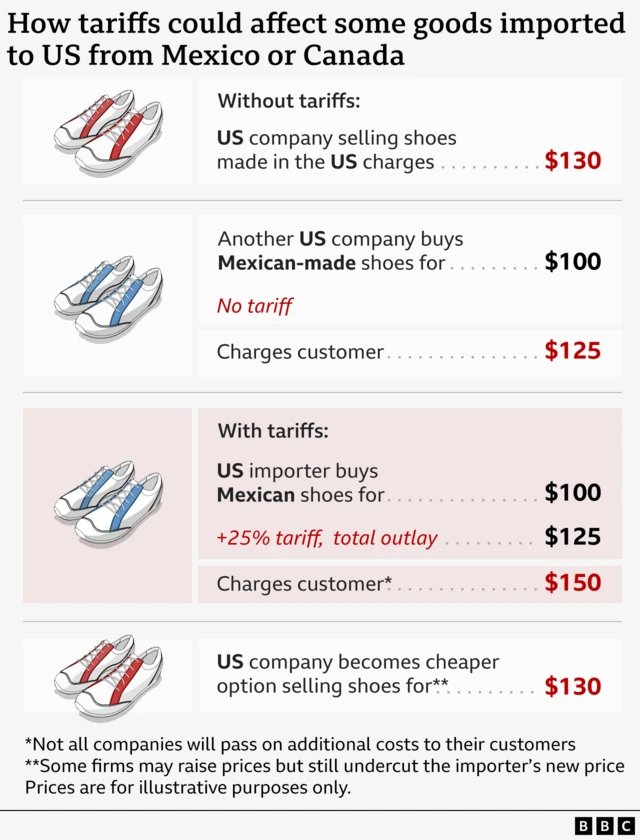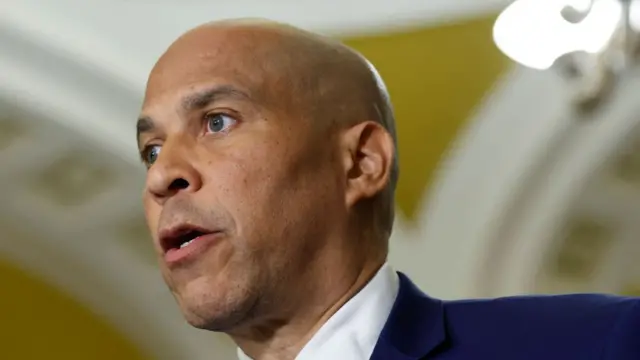
Jitters, uncertainty and hope as UK awaits Trump tariff decisionpublished at 08:11 BST 2 April
 Chris Mason
Chris Mason
Political editor
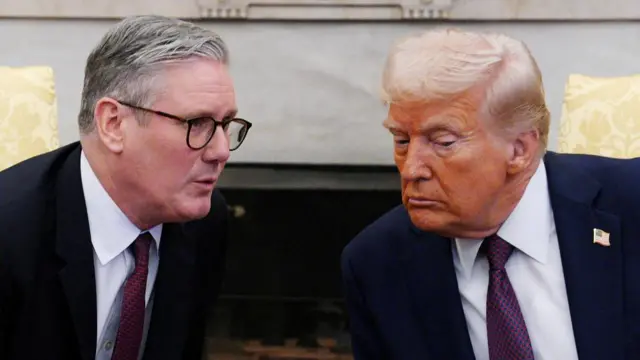 Image source, Reuters
Image source, ReutersI detect a reasonable sprinkle of the jitters in government as the world waits for US President Donald Trump's tariffs announcement later.
It is the single most globally consequential day so far of the president's second term.
Foreign Secretary David Lammy said the UK must "prepare for the worst". But, there is also a hope that what we hear later can amount to a "ceiling", as it was put to me, from which the US can be negotiated down.
Talks are ongoing, at quite an intensity by all accounts, between London and Washington on a narrow trade deal, talked up enthusiastically by Donald Trump when the prime minister met him at the White House in February.
Those on the UK side feel they are making progress and that any agreement could not only ease the impact of tariffs but improve trading relations in particular sectors, such as technology. Let's see.
- Read more in Chris Mason's analysis
